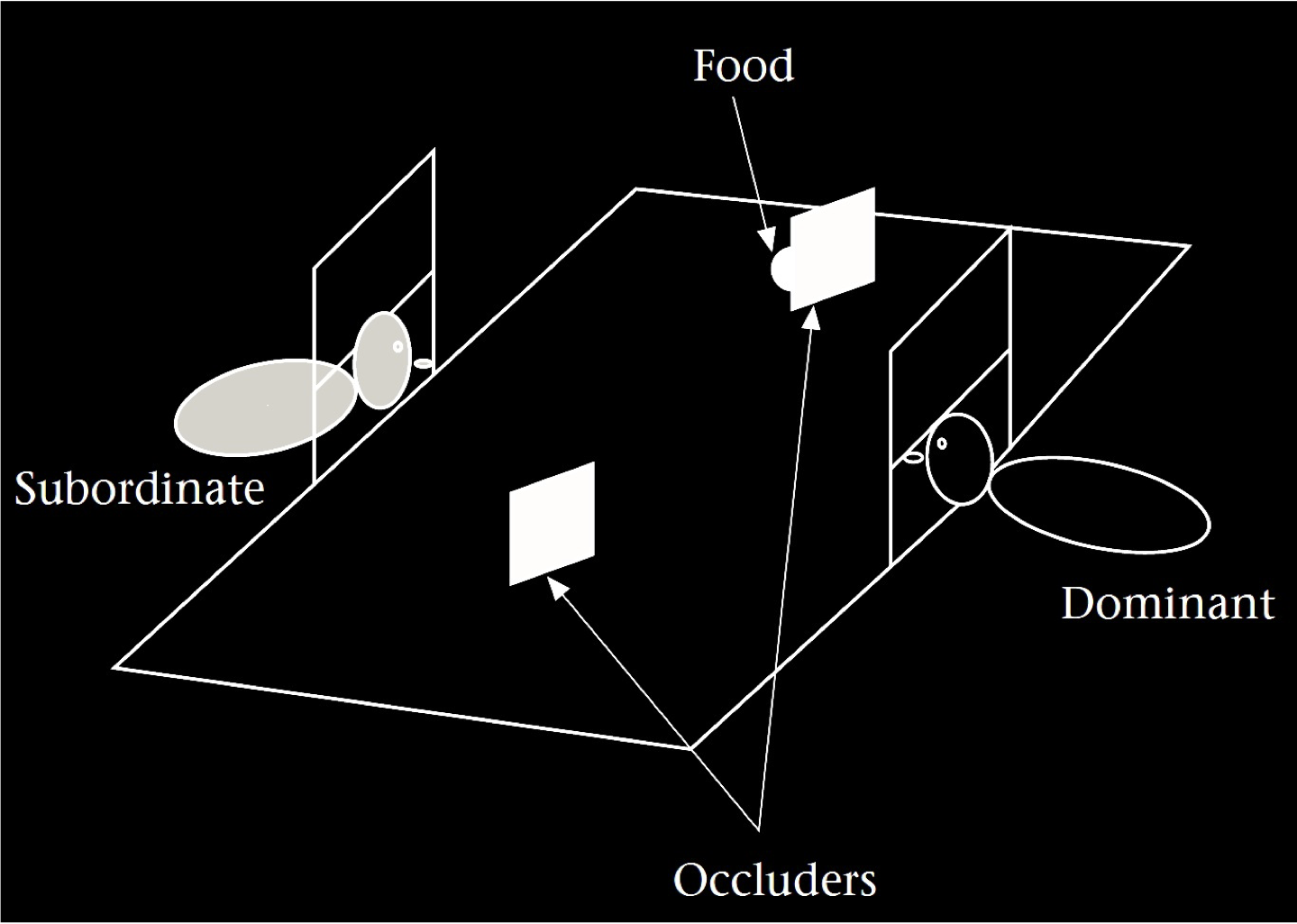Click here and press the right key for the next slide (or swipe left)
also ...
Press the left key to go backwards (or swipe right)
Press n to toggle whether notes are shown (or add '?notes' to the url before the #)
Press m or double tap to slide thumbnails (menu)
Press ? at any time to show the keyboard shortcuts
The Behaviour Reading Demon

Hare et al (2001, figure 1)
‘an intelligent chimpanzee could simply use the behavioural abstraction […]: ‘Joe was present and oriented; he will probably go after the food. Mary was not present; she probably won’t.’’
Povinelli and Vonk (2003)
For any food (x) and agent (y), if any of the following do not hold:
(i) the agent (y) was present when the food (x) was placed,
(ii) the agent (y) was oriented to the food (x) when it was placed,
and:
(iii) the agent (y) can go after the food (x)
then probably not:
(iv) the agent (y) will go after the food (x).
Also, if all of (i)–(iii) do hold, then probably (iv).
‘Don't go after food if a dominant who is present has oriented towards it’
Penn and Povinelli (2007, 735)
The ‘Logical Problem’ ...
‘since mental state attribution in [nonhuman] animals will (if extant) be based on observable features of other agents’ behaviors and environment ... every mindreading hypothesis has ... a complementary behavior-reading hypothesis.
Lurz (2011, 26)